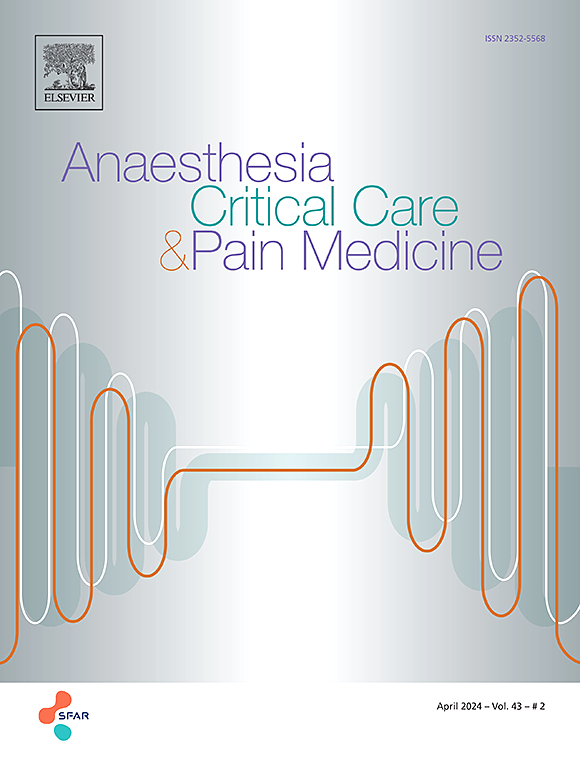Postoperative delirium after cardiac surgery associated with perioperative gut microbiota dysbiosis: Evidence from human and antibiotic-treated mouse model
IF 3.7
3区 医学
Q1 ANESTHESIOLOGY
引用次数: 0
Abstract
Background
Research links gut microbiota to postoperative delirium (POD) through the gut-brain axis. However, changes in gut microbiota and fecal short-chain fatty acids (SCFAs) in POD patients during the perioperative period and their association with POD are unclear.
Methods
We conducted a nested case-control study among patients undergoing off-pump coronary artery bypass grafting, focusing on POD as the main outcome. POD patients were matched 1:1 with non-POD patients based on sociodemographic characteristics, health, and diet. Fecal samples were collected pre- and post-surgery to assess gut microbiota and SCFAs changes. Postoperative fecal samples were transplanted into antibiotic-treated mice to evaluate delirium-like behavior and neuroinflammation.
Results
Out of 120 patients, 60 were matched. Before surgery, gut microbiota in both groups was similar. After surgery, POD patients had lower alpha diversity and distinct microbiota compared to non-POD patients. LEfSe analysis showed POD was linked to increased opportunistic pathogens (Enterococcus) and decreased SCFAs producers (Bacteroides, Ruminococcus, etc.). SCFAs were significantly reduced in POD patients and negatively correlated with delirium severity and plasma inflammation. Mice receiving fecal transplants from POD patients exhibited delirium-like behavior and neuroinflammation.
Conclusions
Postoperative delirium is associated with gut microbiota dysbiosis, marked by an increase in opportunistic pathogens and a decrease in SCFA-producing genera.
Registration
Chinese Clinical Trial Registry ChiCTR2300070477.

求助全文
约1分钟内获得全文
求助全文
来源期刊

Anaesthesia Critical Care & Pain Medicine
ANESTHESIOLOGY-
CiteScore
6.70
自引率
5.50%
发文量
150
审稿时长
18 days
期刊介绍:
Anaesthesia, Critical Care & Pain Medicine (formerly Annales Françaises d''Anesthésie et de Réanimation) publishes in English the highest quality original material, both scientific and clinical, on all aspects of anaesthesia, critical care & pain medicine.
 求助内容:
求助内容: 应助结果提醒方式:
应助结果提醒方式:


